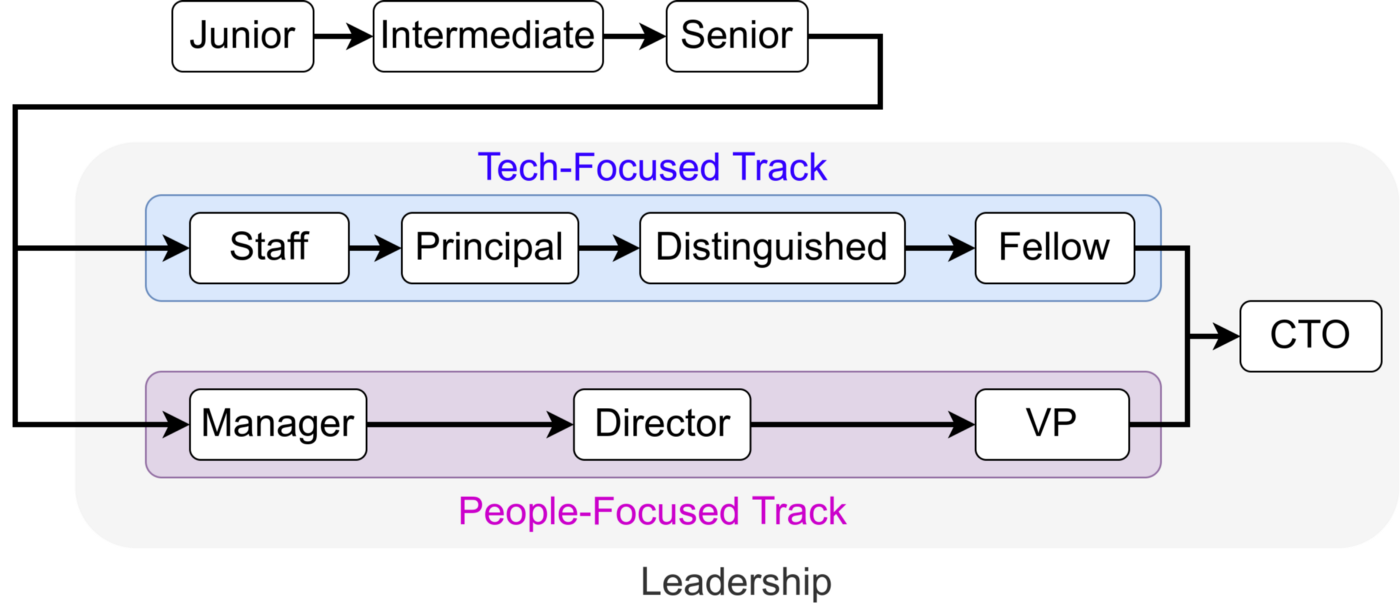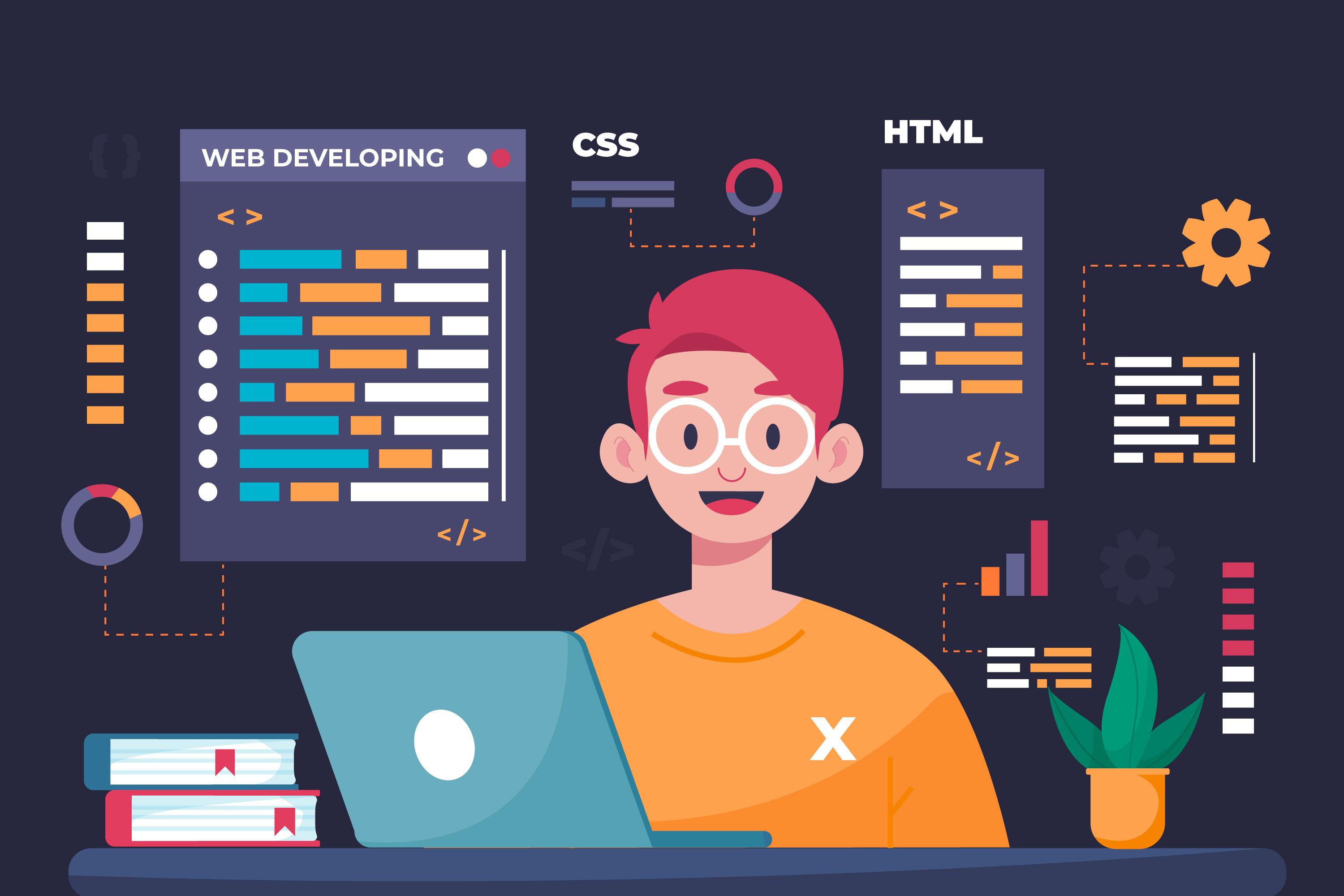
Software development is a profitable career for driven and talented people. It takes dedication and hard work to enter this area, but the rewards are great. Software engineers must constantly learn and grow to keep up with the profession. Software developers have good job placement rates. People with these skills are in high demand across many organizations in the modern labour market. The BLS predicts a 22% rise in software development jobs from 2020 to 2030.
According to industry trends, artificial intelligence, automation, virtual reality, and cryptocurrency are boosting demand for engineering, product development, data science, marketing, and sales professions. Like successful information technology companies, more traditional institutions from fields like healthcare and finance are adopting and implementing cutting-edge technological solutions. The need to improve operations and generate major advantages and income prompted this strategy move. These situations have given skilled software developers new opportunities to build the optimal balance of interpersonal and technical skills.
Software engineers are vital to businesses because they identify, install, and test software before release. Businesses can improve goods more easily with this industry. The software could be used internally to improve operations or sold to customers. After reading this article, you will understand the roles and tasks of distinct software developers.
What Does a Software Developer Do?
Software developers are creative thinkers and doers who create computer programs. Certain developers specialize in a particular program or application. However, others may create extensive networks or systems that enable other programs.
There are two major categories of software developers:
1. Developers of application software
2. Developers of system software
Software developers create and implement software for businesses and consumers. They create Java or C++ programs following thorough client collaboration to determine their demands. They must be critical and problem-solvers.
Why Work in Software Engineering?

Job availability and wage ranges are common factors in hiring decisions, and software development is no exception. The software development sector is booming and offers endless job opportunities. You will also get a good salary based on performance.
However, a software developer’s duties go beyond money. The software development industry is huge, innovative, hard, and profitable. You can learn business and technology as a software developer.
Software development is worth considering for these reasons:
1. Resolving issues
As you may be required to develop complex strategic solutions, you can assess and significantly enhance your problem-solving capabilities.
2. Coding Innovation
Code inspires creativity. To solve software concerns, software developers must be creative. Put yourself in the user’s shoes and come up with a creative approach to remedy it.
3. Based on a Project
Software developers work on projects. Every new endeavour brings new problems and allows you to learn about new technology, systems, and organisational characteristics. Project-based work provides structure because you may have a deadline to finish a project before moving on to the next exciting one.
4. Discover New Programming Languages
As new technologies emerge daily, a software developer must acquire new programming languages and acclimate to a constantly evolving environment. This is a fantastic method to learn about new technologies and update one’s knowledge.
5. Participate in Teamwork
Teams are available for collaboration. Contrary to conventional belief, software developers do not spend their entire day alone in a room working without the need for human interaction. In addition to technical skills, software developers must also possess excellent communication and interpersonal abilities. A great deal of time is devoted to collaborating with teams and exchanging information and ideas to develop superior solutions.
Various Software Engineering Developer Roles And Responsibilities
Numerous routine tasks, such as writing clean code, integrating third-party programs into systems, and identifying areas for development based on user feedback, fall under the purview of software developers. Also included is the development of efficient algorithms.
The Responsibilities of a Junior Software Developer
The role of entry-level software developers, also known as junior software developers, is to assist the development team with all aspects of software design and scripting. Participating in design meetings, writing uncomplicated code, addressing bugs, and assisting the development manager with all design-related software developer duties are among their primary responsibilities.
The duties of a Middle-Level Software Developer
Mid-level programmers need less supervision than novices. They can handle everything on their own and have more duties due to their thorough understanding of the project’s code and technologies.
Mid-level developers must verify that they fulfil the company’s quality requirements, are easily intelligible, and meet all project objectives if a junior developer’s main goal is to write functional code. Mid-level programmers write most of the software’s code.
The Duties of a Senior-Level Software Developer
The responsibilities of a senior-level software developer are as follows:
- Create high-quality software architecture and design.
- Identify, prioritize, and execute tasks throughout the software development life cycle.
- Create tools and applications by developing clean, efficient code.
- Utilize tools and programming to automate tasks.
- Code review and debugging
- Conduct validation and verification tests.
- Collaborate with internal teams and vendors to repair and improve products.
- Document phases of development and monitor systems.
- Ensure that systems are secure.
Software Engineer Career Path
A software engineering degree requires the candidate to have completed a software engineering course. Obtaining decent employment would be much easier after acquiring the necessary technical abilities. If you want to work for the greatest companies, though, you’ll need to enrol in a program at a reputable school that offers useful resources.

Best Job Prospects in Software Engineering
Holding a B.Tech. or certification in software engineering doesn’t mean that you need to stick to it throughout your life. The best part about it is that you can venture into numerous alternate software engineering careers while drawing from your existing knowledge and experience.
Most of these jobs are extremely future-proof and closely related to the software engineering field. To pursue these courses, software engineering experience and a computer science degree are almost prerequisites.
1. Full Stack Developer

Full-stack development is highly promising for software experts. Full-stack developers employ their knowledge of data storage, programming languages, and computers.
A full-stack developer creates the app’s or website’s front-end and back-end code. Create databases, servers, client-side web architecture, and a user experience, then optimize the code for different devices.
Full-stack developers earn an average income of 5.6 LPA or $42,162 to $43,295. In India, the median salary for a full-stack developer is between 2 and 16 LPA. Location, employer, expertise, and years of experience all play major roles.
2. Machine Learning Engineer
This is one of the key tenets of AI since it allows machines to acquire conscience and maintain a state of perpetual learning without being given any specific instructions. In response to being fed fresh information, machines can adapt and improve on their own.
The self-driving Google vehicle, the detection of cyber fraud, Facebook friend recommendations, the display of Netflix and Amazon purchase recommendations based on your viewing habits and interests, and so on are all applications of machine learning.
From the analysis of web search results, real-time advertisements on devices, email spam filtering, pattern identification, and picture recognition, machine learning experts may glean useful data. Such elaborate procedures exclude the use of traditional methods of data analysis, which rely mostly on trial and error. Machine learning puts a brake on this otherwise chaotic data process by creating powerful, time-saving algorithms and real-time data models that reliably predict and analyze outcomes.
Such expertise calls for in-depth familiarity with computing, programming, and even numbers. Every software developer has to have a firm grasp of all three areas.
Machine learning engineers make an average of 6.5 LPA ($50,013–$51,194 a year).
In India, a machine learning engineer may expect to make between Rs 3 and 21 LPA annually. Location, employer, expertise, and years of experience all play major roles.
3. Data Scientist

Data science, the #1 in-demand career profile in the US for three years, is a software engineering stream that creates useful data from massive volumes of user behaviour, market trends, etc. This study revolutionized e-commerce, health, and finance.
The professionals acquire, analyze, and display data using statistics and software engineering skills to gain insights that might improve decision-making and increase yield and individual returns. Few people know that machine learning is a subset of data science that uses historical data to anticipate patterns, verify their accuracy, and optimize algorithms to improve future predictions. Software engineers are the preferred choice for organizations with such complex work since it takes a lot of software, code, and arithmetic. The science market is rising quickly. Its 2026 market is anticipated to be USD 25.94 billion (source). One of the highest-paying occupations nowadays
Data, the new oil, is everywhere. In practice, firms aim to arrange and understand their massive data. One motivation is to respond quickly to user requests. Data scientists are trained to understand data complexity.
Data science is used in education, e-commerce, healthcare, banking, finance, IT, and more. Data science can comprehend and anticipate diseases in healthcare, speeding up diagnosis and personalizing the process.
A data scientist may know probability, statistics, cloud computing, computer languages, database management systems, machine learning techniques, etc.
4. Scrum Master

Agile approaches like Scrum have improved market times, flexibility, product quality, and customer happiness in 2019. This process involves the product owner developing a wishlist, which the project team may break down into smaller components to prepare project deliverables. The team repeats this throughout multiple sprints. The scrum master coordinates all project operations and links clients and teams. To acquire a decent ROI and high-quality project deliveries, organizations are engaging scrum masters since they handle so many tasks, qualities, and duties.
It’s a high-paying industry that requires strong skills to enter. Scrum masters earn 14.7 LPA to 25.0 LPA on average. The wage band would rise with experience and competence.
5. Mobile App Developer
Every program has a massive number of mobile apps. Mobile app developers are among the greatest software engineers today. Mobile app developers conceptualize, code, design, and execute apps with an emphasis on UI and UX. You must also develop Android and iOS apps. Mobile app developers earn an average of ₹ 32,655– ₹ 33,929/month (4.4 LPA).
6. Cloud Engineer
As a result of the widespread adoption of cloud computing since 2015, firms have continued to list open positions on Indeed. Forbes reports that between 2015 and 2019, global spending on cloud computing services increased at a CAGR of 19.4%, from almost $70 billion to more than $141 billion. A stronger level of protection should accompany such a flourishing business. Since more and more IT firms will be cloud service providers in 2019 and beyond, cloud security is a shared responsibility between cloud providers and users who can make use of cloud security tools offered by Microsoft and Amazon Web Services.
Some of the talents a cloud engineer should have are listed below.
- Linux
- DevOps
- Virtualisation
- Programming
- Networking
- Containerisation
- Database management
- APIs
- Web Services
Average cloud engineer salary: ₹ 5.3 LPA or ₹ 40,004– ₹ 41,169/month
7. Cybersecurity Engineer
Now more than ever, companies are interested in making sure their goods and services are impervious to the types of data breach difficulties and threats that have recently plagued industry leaders. Since we are constantly surrounded by networks of interconnected devices, Internet of Things security has become crucial in every industry. Software developers who can provide a more robust and responsive layer of security without sacrificing quality are in high demand.
Cybersecurity is growing rapidly. By 2027, the market will be worth 298.70 billion USD. Protecting sensitive data is driving industry growth. Any business needs information, thus it must be protected at all costs. Sensitive data leaks might ruin companies’ bottom lines.
Engineers specializing in cyber security know how to protect sensitive information from harm. They can recognize the software, hardware, networks, and databases. Both reactively handling assaults and prophylactically thwarting future ones are within their capabilities.
Skills that are required from a cybersecurity engineer are:
- Scripting
- Network security control
- Splunk
- Cloud
- DevOps
- Breach detection
- Communication
If you want to give in to cybersecurity, you need to put in the time and effort to learn the skills that boost development. One may improve their grasp of software development by participating in one of the many available courses.
8. Quality Assurance Engineer
There are a few different names for quality analysts, but all of them refer to those who do tests. They are the ones who have to assess the quality of computer programs and other forms of technology. Through testing, we ensure that our products are flawless in every way and up to par with industry requirements. Quality analysts and engineers play an essential role in developing the strategy for designing and carrying out test programs.
The primary focus in this demanding field is validating the test plans and processes to set quality standards. Top-level experts create quality assurance procedures and check that their work meets current requirements. There has been significant growth in the creation of novel goods and technologies over the past couple of years, necessitating a greater need for qualified analysts. A company’s stability depends on the work of quality analysts, who are essential since they may avoid leaks and other unfavourable events.
They’re in charge of making significant financial and time savings. Last but not least, the company’s continued success in the market is a direct result of its efforts to execute and improve upon these strategies. The quality analyst is one of many IT occupations. One of the future-proof professions. The average QA salary is Rs.3.5 LPA, however, it can reach Rs.7.5 LPA. Knowledge, experience, and professional progress can lead to salary increases. (Source)
9. DevOps Engineer
Expertise in all stages of the software development lifecycle and current automation tools are the hallmarks of a DevOps engineer’s skill set. Close collaboration with developers and other IT workers leads to a plan that streamlines communication across departments.
DevOps engineering is the place to be if you’re enthusiastic about deployment processes and network administration. DevOps Evangelist (an expert who implements DevOps), Security Engineer (someone whose job it is to monitor and perform security checks on the product), Release Manager (someone whose job it is to release new features), Automation Expert (an IT professional with expertise in achieving tool automation and orchestration), Quality Assurance (someone whose job it is to ensure security compliance), Software Developer (the programmer who develops the actual software), and so on.
Below are some of the qualifications an ideal DevOps engineer should possess:
- Cloud
- Mobility
- Containers
- Automation
- CD
- Operations
A DevOps engineer earns an average of 6.0 LPA, and the salary ranges from 4.2 LPA to 12.3 LPA.
10. Game Developer
Playing video games on a desktop during childhood is a memory worth cherishing. If you have grown up with a dream to build your career in game development, then you must know some technical aspects of this challenging domain of software development. Game developers are responsible for constructing a game engine and translating requirements into complicated yet clean code. The primary job responsibilities of a game developer are producing prototypes, animating characters, and generating game scripts.
An expert developer must have a sound knowledge of APIs, libraries, 3D animation, artificial intelligence, 3D rendering, and other programming specialities. The internet is flooded with numerous software development career opportunities, but game development is for those who want a thrilling and exciting profession.
A bachelor’s degree in computer science, machine learning, or game technology can be the first step towards beginning your career in the game development industry. Game development is one of the most important domains in today’s world. Game development brings innovations and life to the nation. The game developers attract users and create a large user base through integrated technology.
The market size for a game developer is expected to reach USD 1,863.53 million by 2027. The game developers were compensated more for their efforts. The average salary for a game developer is 4.5 LPA, and you may expect 13.3 LPA.
Conclusion
Since the IT business is booming, the need for highly skilled software developers will continue. To compete, people must find their particular abilities and passions and use them at work. There are many software engineering paths. Your calling is outside your safe zone—just find it. Software developers’ employment prospects are high since they create innovative technology.



